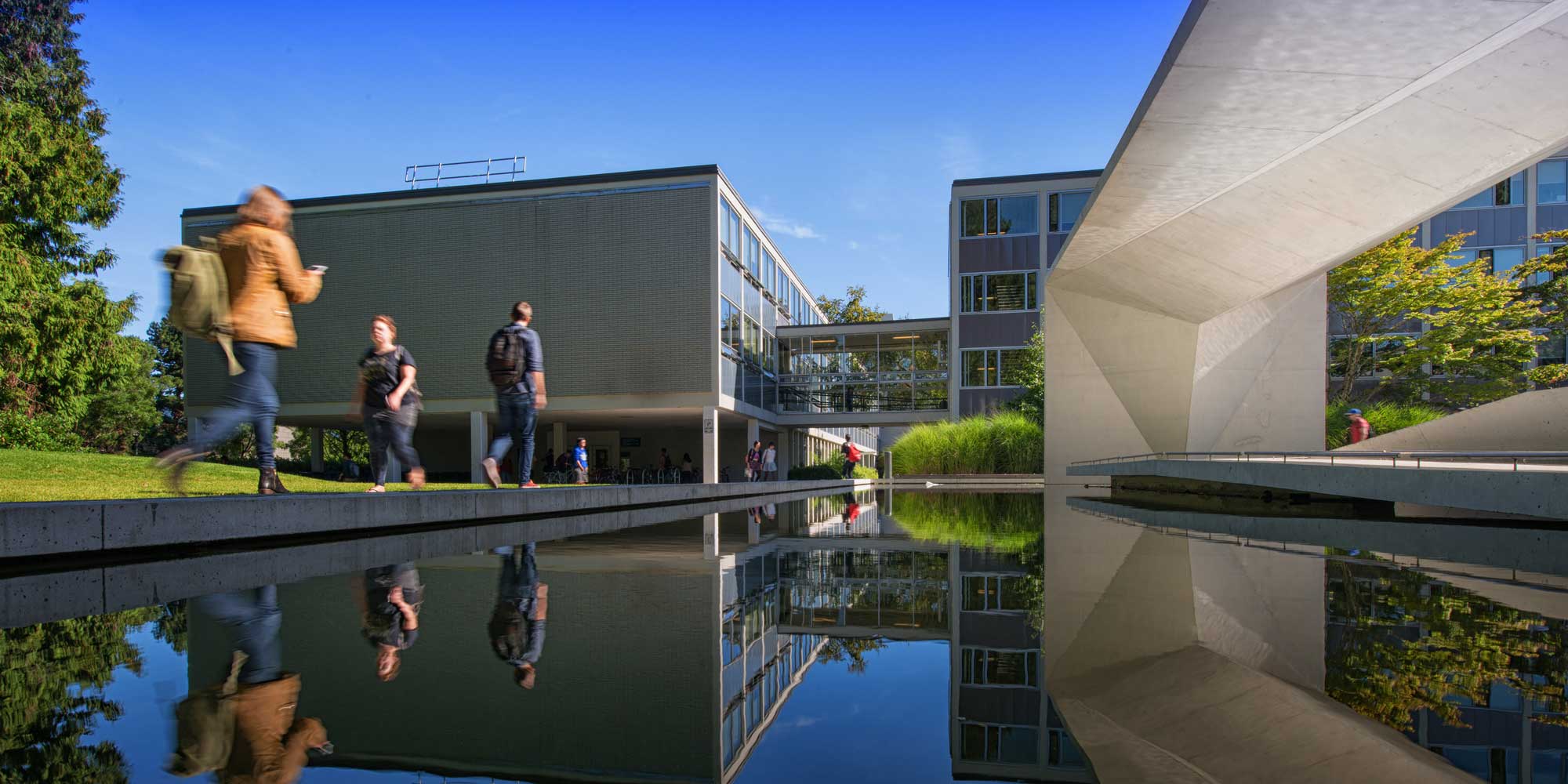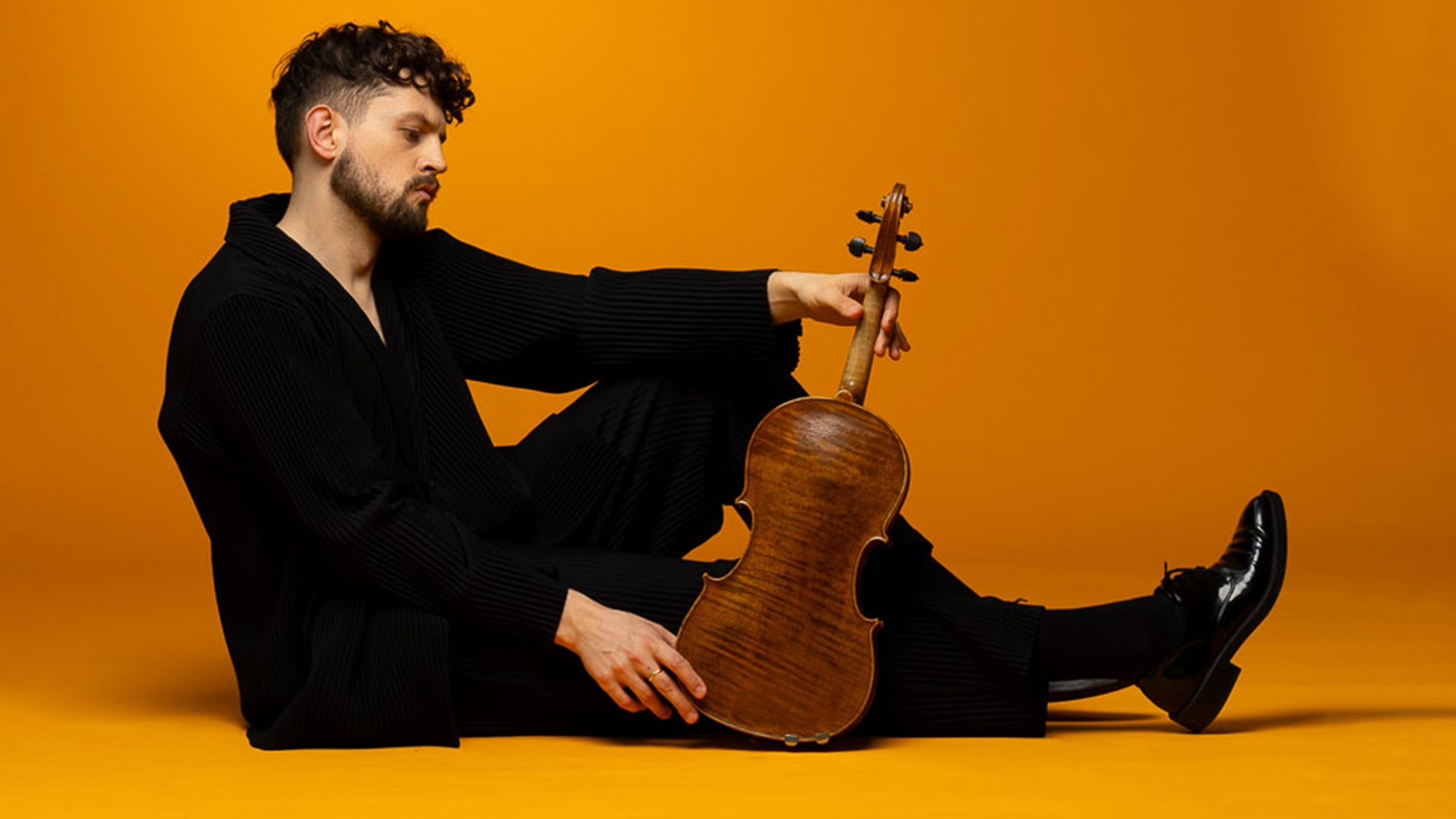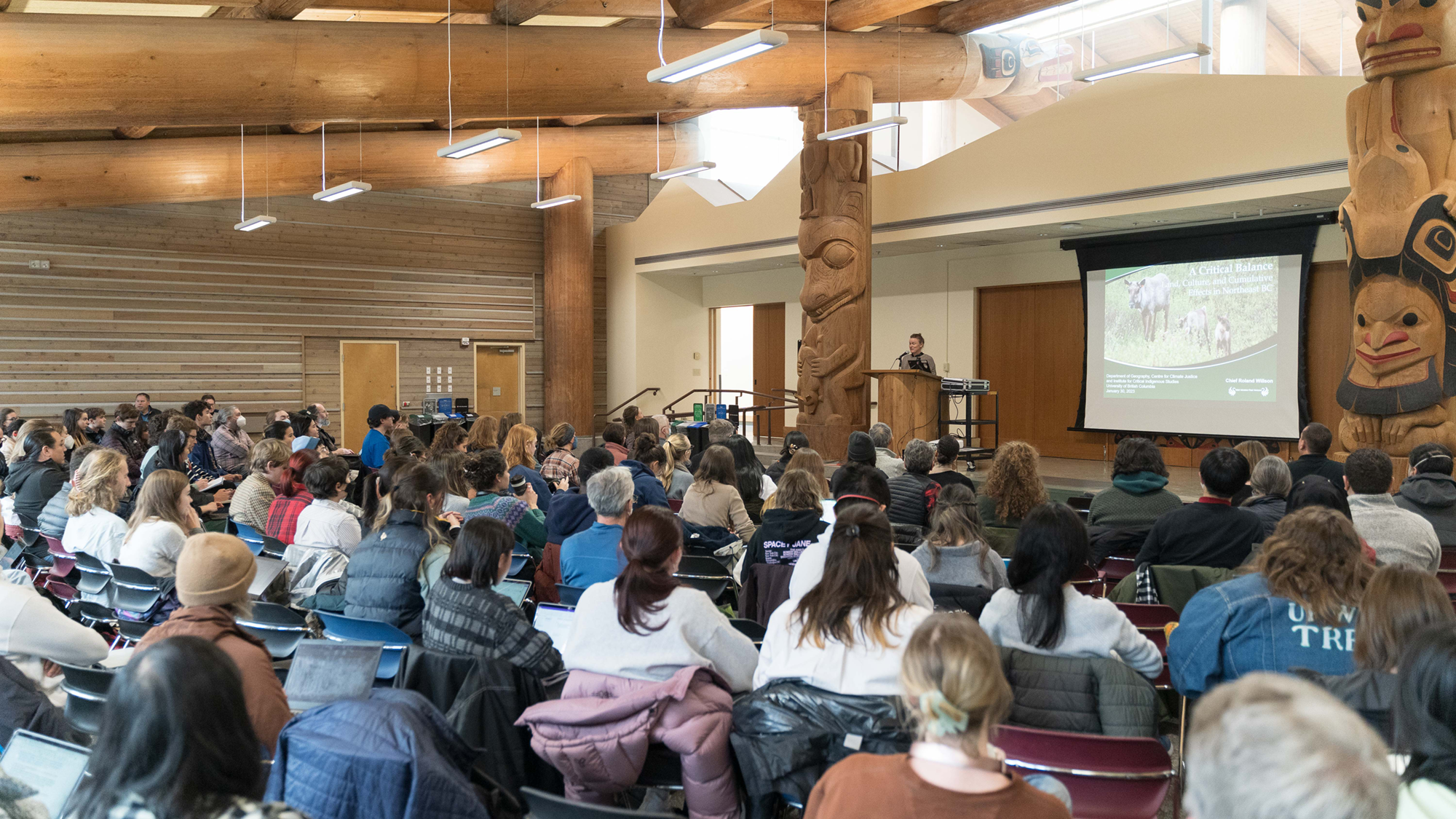

Image credit: Oliver Mann
Nun ke’ Daahwéhsats (Dancing with the Land) is a collaboration between West Moberly First Nations (WMFN) and the UBC Centre for Climate Justice (CCJ) that seeks to advance understanding of how climate science, policies, and solutions will affect Indigenous self-determination, cultural values, and rights. To accomplish the project’s goals, WMFN and CCJ created a cooperative climate research agenda to establish priorities and fill these knowledge gaps in line with WMFN community values, and objectives.
In 2022, this project received funding from the Community-University Engagement Fund (CUES). Paid directly to the community partners, the funding is designed to support initiatives that benefit communities and advance collaborative research, teaching and learning across the province. The funding was used to convene a workshop between WMFN and UBC researchers on the topic of climate justice.
One year on, Geography Professor Dr. Jessica Dempsey and West Moberly First Nations Environmental Planner Bruce Muir reflect on how the community and UBC are working together, and what they’ve learned from the collaborative process.
This editorial is part of an ongoing series that dives into CUES-funded projects and highlights the achievements of community-university partnerships. Read more from this series:
What strategies or actions did you implement to ensure that the community partners’ voices were heard and valued?
Jessica Dempsey: The project is designed to be a reciprocal exchange of knowledge, useful for the Nations but also for UBC researchers involved. In practice, this involved moving with constant consultation with the WMFN staff members working on the project, but also carefully considering the UBC participants. I can say that after the workshop I received many emails from my UBC colleagues who expressed gratitude for the experience and the opportunity to learn from the WMFN Chief Roland Willson, and the staff present. It was an impactful few days for many UBC folks, not only for the workshop participants but for the 200+ people who attended Chief Willson’s talk.
What did this partnership mean to the community? What was the impact?
Bruce Muir: For the WMFN, it’s important to reach out to other people and institutions that can enhance their understanding and provide a different way of thinking about the issues they are facing, like climate change. The partnership was based on the notion of reciprocity. The approach to the partnership is of utmost importance to the community, in that the relationship was viewed as an exchange of knowledge and experience; a two-way street.
The workshop helped open up a dialogue with UBC researchers, but also opened up a dialogue internally, within WMFN, about climate change and its history with the people. Of course there was always knowledge of climate change, but the workshop pushed us to begin to address it intentionally and more substantively. The new knowledge sparked internal debate and discussions to chart a path forward, in culturally meaningful and appropriate ways. For example, as is often the case, the Elders begin with old stories. Our people have stories about ice being as thick as the mountains are tall, and a time when we hunted animals that shook the land when it walked (i.e., the Wooly Mammoth). As storytellers say, we survived the last climate change event, and now we must find a way to survive this one.
How did the Community-University Engagement Support Fund impact the research?
Jessica Dempsey: A CUES grant and a Chapman and Innovation Grant (awarded to UBC PhD Student Audrey Irvine-Broque) were used to convene the climate justice workshop in January 2023. The objective of the workshop was to share knowledge about ongoing climate research at UBC and to explore potential climate-related research projects that would support WMFN’s ability to plan for their territories with regard to climate change in the short and long term. As a part of the workshop, Chief Roland Willson delivered a powerful public lecture at the First Nations House of Learning on January 30, 2023, titled “A Critical Balance: Land, Culture, and Cumulative Effects in Northeast BC” (co-hosted by the Critical Indigenous Studies, Geography, Centre for Climate Justice, iBios).
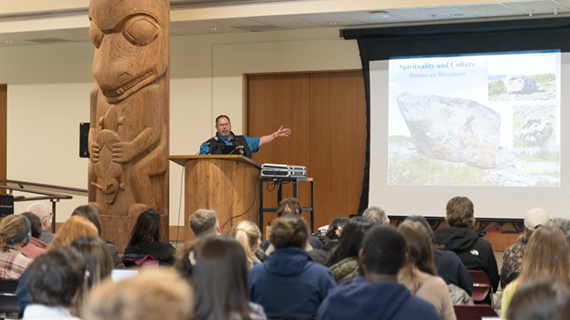

In what ways did the university partner prioritize the needs and perspectives of your community during the research project?
Bruce Muir: At the workshop, participating professors were able to take complicated science and translate it quickly and simply. Those of us attending were able to bring that information and knowledge back to the community. Researchers were also able to give the community some concrete climate modeling projections that were immediately useful.
In the fall, WMFN will be hosting open houses for the community and will be using the data and maps provided by UBC researchers. The knowledge shared is providing openings for discussions amongst WMFN members outside of the Department of Lands and Resources and Chief & Council.
“With the right people and the right intentions, it becomes possible to exchange ideas and knowledge, and to forge stronger relationships. We cannot stress this enough.”
What suggestions or recommendations do you have for university partners to further improve their approach to equitable collaborations in future projects?
Bruce Muir: The positive outcomes and impact would not be possible without a foundation of trust. It was very important for us that the selection of participants for the workshop was done carefully, to ensure those attending share the same values. We could tell that the UBC researchers we work with were intentional in choosing who they brought to the table. With the right people and the right intentions, it becomes possible to exchange ideas and knowledge, and to forge stronger relationships. We cannot stress this enough.
Another key learning is that much of the engagement with communities is not through silos or disciplines. The problems we face demand interdisciplinary work that fits better with the cultural ways of knowing. Another key learning was that the researchers had a broader, more expansive notion of climate change. The workshop brought together health scientists, wildlife ecologists, social scientists, and humanities experts. One highlight was when Director of Critical Indigenous Studies, Dr. Bernard Perley, brought an emphasis on Indigenous languages and art into the workshop, which for the community is as important as the hard sciences. Traditional art documents as much as it teaches, telling stories, revealing histories, and shows the connections between the people and land. One idea that emerged was having a community artist work with storytellers to illustrate the history of the people, climate, and cultural perseverance.
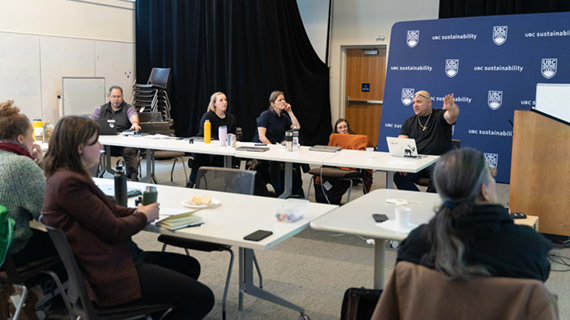

What’s next for the project?
Jessica Dempsey: For me, the workshop strengthened relationships, and it also led to new collaborations beyond my areas of expertise. For example, WMFN is now working with one of my colleagues in Geography to better understand how climate change will impact plants in their territory. There are also budding projects between WMFN and faculty in forestry.
